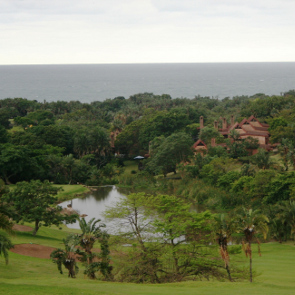
Olivier Ndoole Bahemuke
Olivier is a Congolese environmental rights defender and lawyer from North Kivu, Democratic Republic of the Congo. He has dedicated his life’s work to advocating for environmental rights, land rights and land justice; pushing for transparent, accountable, and sustainable governance of land tenure regimes for the country’s lands. In 2008, he co-founded the NGO ‘’Alerte Congolaise pour l’Environnement et les Droits de l’Homme’’ , through which he has actively supported and represented local communities, groups and individuals working on the environment for over 15 years.
As the second-largest tropical forest in the world, the DRC has exceptional natural resources. The country has faced a complex humanitarian crisis since 1994; plagued by war and violence in the Eastern regions which has led to conflict, poverty, malnutrition and recurring epidemics. Correspondingly, human rights defenders (HRDs) in DRC work in an extremely hostile and insecure context; vulnerable to attacks, intimidation, killings, threats, judicial harassment and physical assault, worsened in areas where there is ongoing conflict. More so, those working on land and environmental rights are seen as threats to economic interests, and their access to certain areas to monitor and report on human rights violations is often impeded, creating further barriers to their work.
Olivier has been persecuted and faced grave danger due to his human rights work, targeted by recurring death threats and an attempted assasination, which caused him to flee his home country and go into exile for his own protection. He has been severely beaten and tortured by security forces; once to the point of needing hospitalisation for 12 days. His organisation has also faced attempts of sabotage such as robbery and break-ins. Despite these harrowing circumstances, he is hopeful and inspired to continue securing justice for the victims of land and environmental injustices in the DRC, especially at-risk and vulnerable groups like women and children.
Olivier is known as the ‘’Green Lawyer’’ in North Kivu because of his defence of Virunga Park and its workers and people. The communities he has represented face economic expropriation and exploitation of their land and resources. In the context of the DRC, this has affected women and children most – many women have lost their husbands in the conflict and are left vulnerable. They are then driven off their land, which has plunged them into grave insecurity. Olivier has ensured that they, and other vulnerable victims, are not forgotten.
Aside from his active human rights work, Olivier has a number of academic accolades behind his name as well; including being an alumni of the Elaw Fellowship, a member of the International Network of Lawyers Elaw, the face of International Union for Conservation of Nature, and has participated in a number of projects working with several highly ranked international universities.

